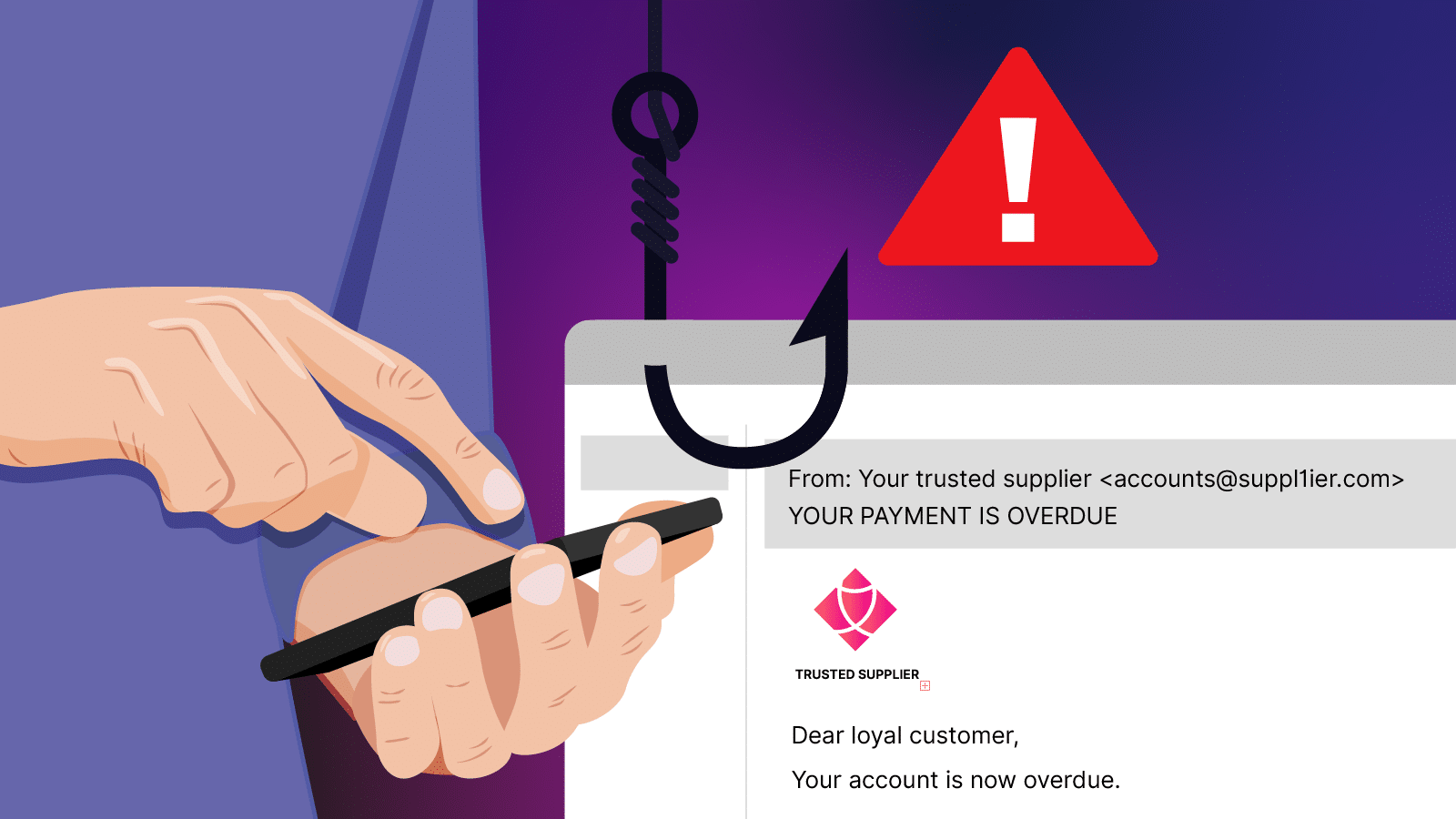With the holidays just around the corner, small businesses are gearing up for one of the busiest shopping periods of the year. While it’s a time for retailers to boost sales and for customers to grab great deals, it's also prime time for cyber criminals.
For small businesses with limited cyber security infrastructure, staying vigilant against these threats is especially important.
Here’s how to spot common scams and sleigh cyber crime during the festive season.

1. Phishing emails and fake links
Cyber criminals send out fake emails that look like they’re from trusted vendors or payment processors, often with subject lines mentioning “Black Friday deals” or “urgent account issues.” These “phishing” emails typically include malicious links or attachments, aiming to harvest login credentials or install malware on your devices.
How to spot it
To help spot a phishing email, look for generic greetings, unusual sender email addresses, or suspicious links.
2. Fake payment processors
Some hackers set up fake payment pages that look like those from reputable companies. Customers who fall for these pages may input their credit card information, which the scammer then uses for fraud. Small businesses need to be especially cautious with any payment service changes or integrations during the sales rush.
How to spot it
Check for unusual URLs and verify the SSL certificate by clicking on the padlock icon in the address bar.
3. Malware and ransomware attacks
With higher volumes of online transactions, hackers attempt to slip malware or ransomware into the networks of businesses that may have temporarily relaxed security. Once inside, they can lock down essential files, leading to significant disruptions and potential ransom demands.
How to spot it
Watch for slow website performance, unexpected redirects, or pop-up prompts to download files.
4. Fake online stores
Fraudulent websites that mimic legitimate retailers often appear with irresistible discounts during sales season.
How to spot it
Check for unusual domain names, assess the website’s design and content and look for spelling mistakes or outdated branding.
5. Gift card scams
Gift card scams often begin with someone pretending to be a friend, family member, or even a senior leader from your workplace. The fraudster invents a false emergency and urges you to buy gift cards. Once you share the card numbers and PINs, the scammer drains the gift card balances.

How to spot it
Be wary of any urgent requests for gift cards, especially if communicated via email, text, or phone and always verify the request independently before taking action.
While Black Friday, Cyber Monday and end-of-year sales offer tremendous opportunities for small businesses, they also bring increased risks of cyber attacks. By staying vigilant, educating your team, and implementing security best practices, your business can safely navigate the shopping season and enjoy a successful sales boost.
Download our Cyber Security Holiday Guide for more information on how to stay safe online this festive season.




































